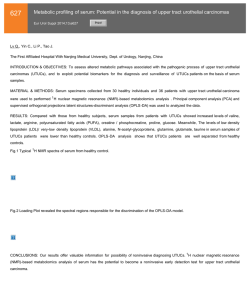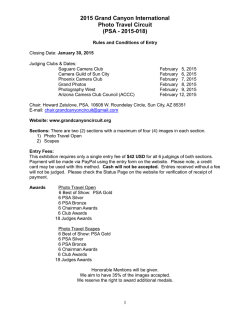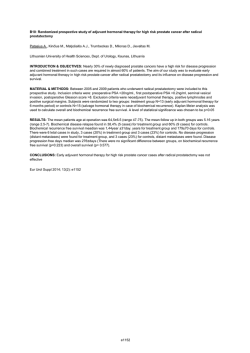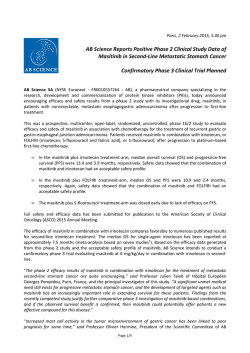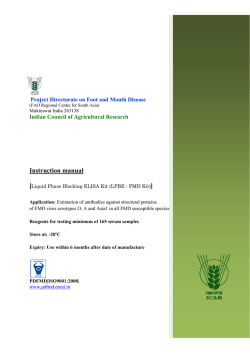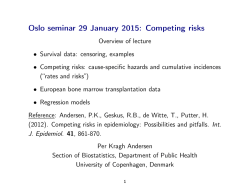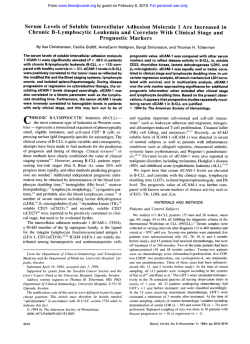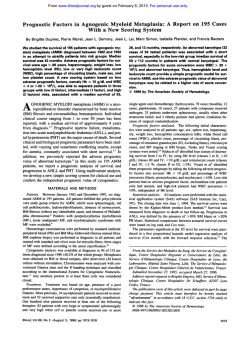
1-s2.0-S156990561460107X-main
106 Serum MMP-7, sFas and FasL levels in predicting therapy resistance and survival in castration-resistant prostate cancer patients treated with docetaxel Eur Urol Suppl 2014;13;e106 Print! Print! Szarvas T., Sevcenco S., Shariat S.F., Kramer G. Medical University of Vienna, Dept. of Urology, Vienna, Austria INTRODUCTION & OBJECTIVES: Rapidly expanding treatment options for castration resistant prostate cancer (CRPC) lay claim for a more accurate prediction of treatment response. Currently, there are no reliable pretreatment factors for the prediction of docetaxelresistance and patients’ survival. MMP-7 was found to be involved in chemotherapy-resistance by regulating the Fas – Fas ligand apoptotic pathway. Therefore, we aimed to analyze the predictive value of baseline serum levels of MMP-7, sFas, FasL, PSA as well as their changes in CRPC patients who were treated with docetaxel chemotherapy. MATERIAL & METHODS: This study included 96 CRPC patients. Based on objective criteria, 21 men were considered as docetaxelresistant and received one single series of docetaxel with 5-8 treatment cycles. Seventy-five docetaxel-sensitive men received repeated series of docetaxel until the appearance of resistance. Ninety-six pretreatment serum samples as well as 987 sera collected during docetaxel treatment were analyzed for circulating MMP-7, sFas, and FasL levels by using ELISA. Results were correlated with clinicopathological and follow-up data. RESULTS: MMP-7, sFas and PSA levels were significantly higher in docetaxel-resistant compared to sensitive patients (p=0.007, p=0.001 and p<0.001, respectively). Fas and FasL levels showed no significant changes during docetaxel therapy. In contrast, in patients with high MMP-7 baseline levels, MMP-7 serum concentrations consequently deceased in therapy series and increased in treatment holidays. High pretreatment levels of MMP-7, sFas and PSA were associated with shorter patients’ survival (p<0.001, p=0.014, p<0.001, respectively). Multivariable analysis revealed high MMP-7 as an independent risk-factor for poor patients’ survival (HR=2.114, 95%Cl 1.356 – 3.296, p=0.001). Increase of MMP-7 levels in the 2nd treatment holiday proved to be predictive for survival. CONCLUSIONS: MMP-7, sFas and PSA baseline levels may help to select CRPC patients who are sensitive for docetaxel chemotherapy. In addition, MMP-7 might be used for therapy monitoring. Both pretreatment levels and changes of MMP-7 might help to guide chemotherapy treatment decisions in CRPC.
© Copyright 2026
